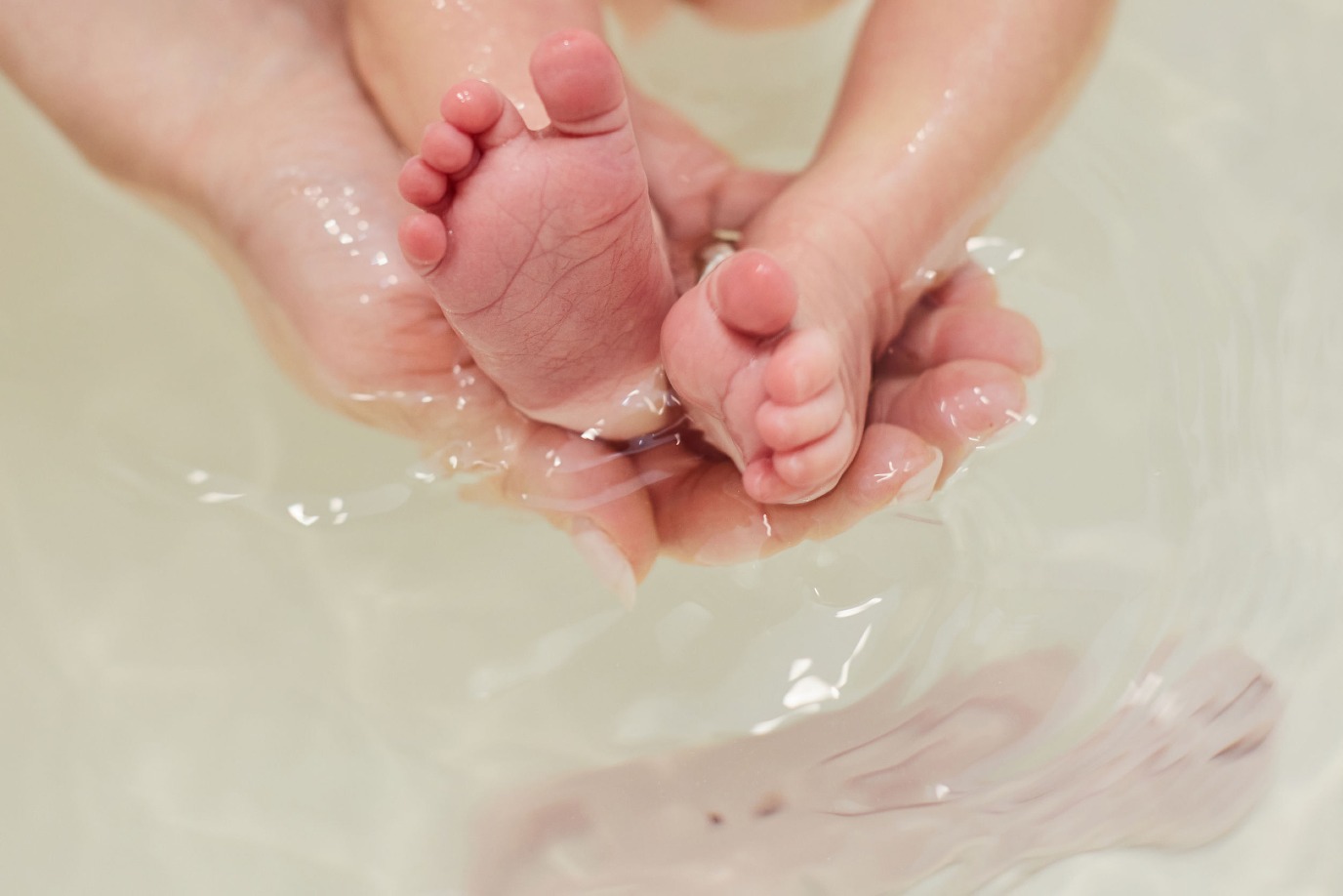Science shop dives into the world of baby spas
Baby spas have been gaining in popularity recently, both in the Netherlands and abroad. You might think... baby spas? A baby spa involves a relaxing hot bath in which babies can float, followed by a massage. In other words, it is a kind of wellness centre for babies. Less than ten years ago, the first baby spa opened its doors in the Netherlands. Since then, their number and popularity have increased enormously. As these spas are quite new, little research has been conducted on them so far. This makes it a socially relevant topic that is suitable for a project within the Science Shop for Medicine and Public Health. This issue provides a glimpse behind the scenes of our Science Shop in the University Medical Center Groningen (UMCG).
Text: Thomas Wieringa, coordinator of the Science Shop for Medicine Public Health
The Baby Spa Network Foundation posed the following question to the Science Shop: ‘What are the effects of a baby spa treatment on a baby’s health?’ We want to answer this question through a student project.
Examining babies
However, there is one big ‘but’. The tricky thing about the Baby Spa Network Foundation’s question is that, in order to provide the best answer, babies would have to undergo a battery of tests. Conducting medical research on babies is very complicated for practical and ethical reasons. You cannot just run all kinds of tests. In addition, you might wonder how willing parents are to participate in a study when all they want is to relax at a baby spa. These practical and ethical issues are even more complicating for the Science Shop as we have limited time and resources. Therefore we have to look into an alternative method.
Alternative approach
Ultimately, we decided to carry out a literature review. This involves a thorough search for existing scientific publications on the relationship between baby spa treatments and the health of babies. All the publication results we find on this subject will be summarized and reported. This research will be conducted by a master’s student in medicine as part of their thesis.

Learning from other studies
This literature study has multiple advantages. For example, the student does not have to undertake any taxing procedures on the baby (such as testing their blood pressure or blood sampling). This way, babies are not affected by the research, costs stay low, and we still get more information on the effects that baby spa treatments have on babies’ health. Furthermore, we will learn how to set up a research project on baby spas by analysing the literature on previous studies. For instance, which non-intrusive tests can best be conducted to record the baby’s health? What strategies can be employed to encourage parents to participate in a study while they are at a baby spa to relax? Answers to these questions are still pending. Obtaining these answers would be beneficial, as they could be utilized for future research—potentially at the Science Shop. If it turns out that there is not a lot of information on the effects of a baby spa treatment on a baby’s health, future research on baby spas may be desirable.
Through this project, the student will learn how to set up and carry out a literature review, as well as recognize its importance to society — in this case, the owners and visitors of baby spas. This creates a win-win situation, as both society and the student benefit from the Science Shop project. This way, we preserve both the baby and the bathwater!
More information
More news
-
15 September 2025
Successful visit to the UG by Rector of Institut Teknologi Bandung
